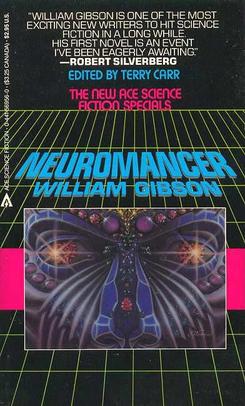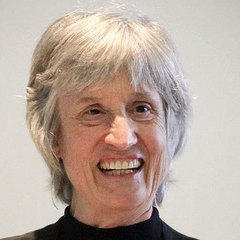Quotes
"For Case, who'd lived for the bodiless exultation of cyberspace, it was the Fall. In the bars he'd frequented as a cowboy hotshot, the elite stance involved a certain relaxed contempt for the flesh. The body was meat. Case fell into the prison of his own flesh."
- William Gibson, Neuromancer, page 6.
"A year here and he still dreamed of cyberspace, hope fading nightly. All the speed he took, all the turns he'd taken and the corners he cut in Night City, and he'd still see the matrix in his dreams, bright lattices of logic unfolding across that colourless void... The Sprawl was a long, strange way home now over the Pacific, and he was no Console Man, no cyberspace cowboy. Just another hustler, trying to make it through"
- William Gibson, Neuromancer, page 4-5.
Gibson, in more than just Neuromancer, always seems to carry a wary stance against technology. That if we as humans throw ourselves into it with reckless abandon, we will become lost in it and our humanity will become lost to us. Case clearly suffers from several forms of addiction, but the most painful withdrawals he seems to experience are the ones from not being in the Matrix. The "prison of his own flesh" could describe the mental state of many today. Many people have grand and excited lives online where they are bold, confident, and well liked, but then go back to the real world where a basic level conversation with a cashier could insight a nervous tick. What minimum percentage of human do we have to be to still be considered human?
Haraway
“Cyborg writing must not be about the Fall, the imagination of a once-upon-a-time wholeness before language, before writing, before Man. Cyborg writing is about the power to survive, not on the basis of original innocence, but on the basis of seizing the tools to mark the world that marked them as other."'
Donna Haraway, Manifestly Haraway, Page 55.
"Late twentieth-century machines have made thoroughly ambiguous the difference between natural and artificial, mind and body, self-developing and externally designed, and many other distinctions that used to apply to organisms and machines. Our machines are disturbingly lively, and we ourselves frighteningly inert."'
Donna Haraway, Manifestly Haraway, Page 11.
Haraway seems to have a much more optimistic approach to the coming future of cybernetic enhancements. The way she speaks throughout the Cyborg Manifesto section of her book lays out the future of technology as the great equalizer. That man and woman will only have the barest of differences, and even those will be ignored in the shadow of our cybernetic augmentations as we ascend together as the human race. While she does carry her own reservations about the routes we are currently taking, she holds up the future as a shining example of what could be as compared to Gibson's warning of what might be.
Azuma
"If, in postmodernity, the notion of transcendence is in decline, what becomes of the humanity of human beings?"
-Hiroki Azuma, Otaku: Japan's Database Animals, Page 66.
Gibson

 William Gibson and the cover of Neuromancer
William Gibson and the cover of Neuromancer
Haraway

Donna J Haraway and her book Manifestly Haraway
